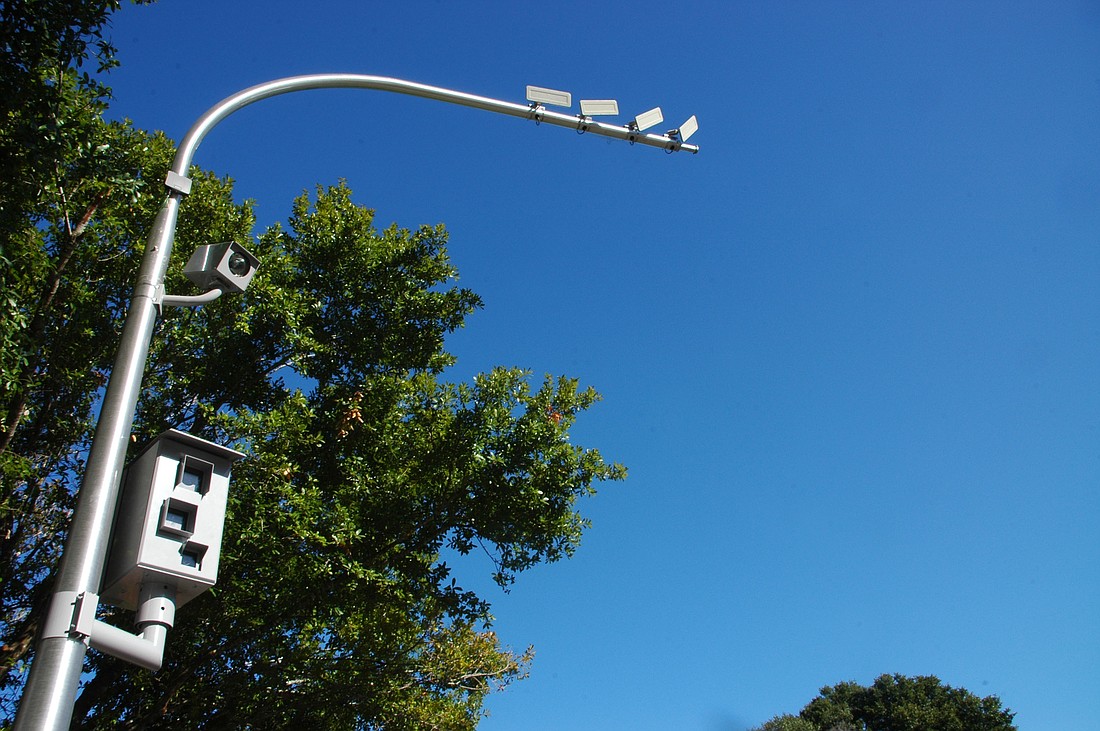- April 25, 2024
-
-
Loading

Loading

Central Florida drivers could soon be seeing yellow a little longer at stoplights on local streets. A recent ruling by the state of Florida mandates for longer minimum yellow-light times at intersections rigged with red-light cameras, giving cities using the cameras until the new year to comply.
The new standards give drivers a benefit of an extra half a second at most, depending on the speed limit at each intersection, to get through before the flash of the camera can catch them.
Maitland Transportation Engineer Charlie Wallace said the city, which operates nine red-light cameras at five city intersections, will look to see if its lights need recalibration to comply with the new regulations by December.
“It’s a little more than just recalibrating [the times],” Wallace said. “We need to check the traffic cycles and make sure we’re not doing anything to mess them up.”
The extension of the light lengths has been considered a small victory for those who claimed the signals were unfairly short and led to an increase of citations caught on camera. But Maitland Deputy Police Chief Bill McEachnie said he doubts the change will have much impact on the number of tickets doled out.
“Most of the people who run them, run them really good,” he said, adding that the extra half a second, in most cases, may not make much of a difference.
In the 2012-2013 fiscal year, McEachnie said Maitland had 12,507 paid red-light camera violations, which netted $938,038 in revenue for the city. The remainder of revenue from each $158 citation goes back to the state.
“But I’m always looking at it from the public safety side,” McEachnie said. “Revenue is a side issue. We look at it as a good thing for the city.”
He said in the city’s first year of implementing the cameras from 2011 to 2012, the police department saw a marked decrease in accidents at the intersections where the cameras were installed. But, he said, it’s too soon to tell whether that decrease would be short-term due to increased attention following camera installation, or if the trend will continue long-term as the lenses keep snapping.
But if some legislators in Tallahassee get their way, the camera bulbs may burn out sooner than local police stations would like. Last month, State Sen. Jeff Brandes, R-St. Petersburg, filed a bill, SB 144, hoping to ban the use of red-light cameras statewide, proposing that the cameras are primarily unfairly used to provide revenue rather than safety.